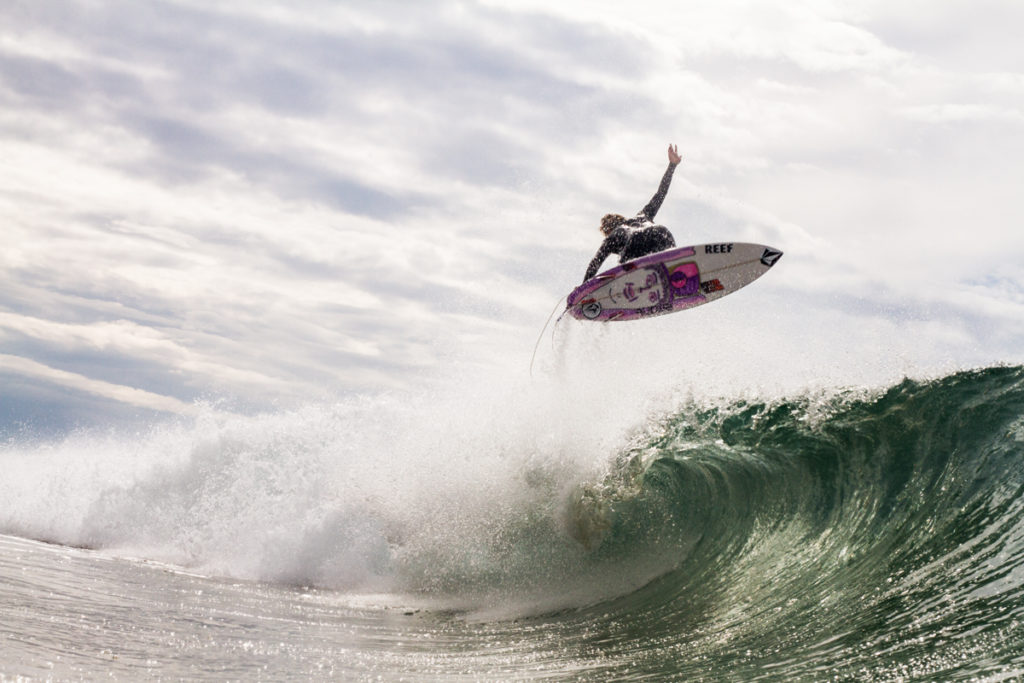Buy Now, Pay Later

Free Surfboard Advice
Customer Service 9am - 5pm (UK)
Trusted by Pyzel

We all need to look after our environment, especially the ocean. Protecting our sea, beaches and coastlines is of paramount importance to the future of the planet.
Every individual must do their bit to protect our coastal areas, but just how do we reduce our impact on the sea and beaches? There are numerous things we can all do to stop the deterioration of our priceless ocean.
The only things you should leave on the beach are your footprints when you leave! If you have litter, either put it in a public bin, or even better, take it home with you and recycle it. If you see someone else leaving litter on the beach, remind them to pick it up.
If you feel it isn’t advisable to say anything to strangers because of a possible negative reaction, pick up any rubbish they have left and bin it. As long as it’s items such as drinks bottles or food wrappers that don’t contain hazardous materials, this is a good way you can do your bit. Think of it as an impromptu mini beach clean-up. It’s a small step, but if everyone did this, it would make a massive difference to what ends up in the ocean.
Litter can have a horrific impact on marine life. Plastic waste in particular is extremely hazardous. The chemicals in plastic can make an animal or fish ill, or possibly even kill it, if ingested. Larger pieces of plastic can injure marine life such as dolphins, seals, or sea turtles. They can get tangled in plastic debris, such as fishing nets and lines dumped in the ocean, or the plastic packaging that holds the four-packs of soft drinks together. This can prove fatal to the affected animal, who may not be able to swim, fly, feed or even grow because of plastic wrapped round its body.
An estimated 80% of debris found in the ocean is believed to come from land-based activities. While people’s leisure activities on the beach contribute much of it, other factors also contribute; such as fishing, oil rigs, the sewage system and shipping.
Volunteers regularly take part in beach cleans to do their bit for the environment. These are either organised by environmental charities and other groups, or carried out voluntarily by individuals and groups of friends.
Unfortunately, the Covid-19 pandemic temporarily halted communities from meeting up and hosting regular beach cleans. It is hoped that now most of the restrictions have been lifted, local beach cleans can again start to take place. Try to get involved, as they are great events to do something worthwhile and foster a sense of community.
Check on social media sites, with your local environmental groups or charities, or in the local newspapers to see if there are any beach clean events in your area. If not, why not organise one yourself? It’s easy to grab people’s interest by promoting it on social media.
Whenever possible, recycle all your waste – reuse glass jars for packed lunches, rather than buying food in single-use wrappers for your picnic on the beach.
If you’re looking for inspiration, Pinterest is a good place to start, as there are plenty of ideas for recycling and upcycling. The last thing anyone should do is add to the waste mountain of single-use plastics.
When it comes to something as important as food, always buy from local producers who trade in an ethical manner. Items such as fish, organic fruit and vegetables that are grown locally reduce your impact on the environment.
If you’re buying products that have spent days being shipped from other suppliers overseas, not only do they have an increased carbon footprint, in terms of transport emissions, but they are also not as fresh. When buying seafood, look for the label that confirms it is responsibly sourced.
If you’re a regular at the beach in summer, don’t buy new plastic bottles of water each day. Invest in reusable water bottles and fill them before leaving home. Single-use plastics fill our homes, landfill sites, streets and the ocean, despite being toxic to marine life.
You can buy so many eco-friendly products today, there’s simply no excuse! Use shampoo bars rather than liquid shampoo in a bottle. Always take a reusable coffee cup with you for takeaway beverages. Use a bag for life instead of buying new plastic bags at the supermarket each time.
There are green alternatives to just about every product on the market. Did you know you can even buy environmentally–friendly wetsuits? Surf wear brands such as Roxy’s Pop Surf supported by Stephanie Gilmore offer an eco-collection.
A global movement called “1% for the Planet” is encouraging businesses and individuals to support environmental initiatives, both through an annual membership and in their everyday actions. It advises members on green strategies and certifies donations to make the most of the network’s impact on the environment.
Plenty of businesses donate 1% to the planet. The organisation was founded in 2002, by Craig Mathews, founder of Blue Ribbon Flies, and Yvon Chouinard, founder of Patagonia. It has grown into a global movement today, enabling supporters to donate money to help our planet and contribute in a practical way through their own actions.
There are plenty of campaign groups out there that are helping to protect our sea, beaches and coastlines – most notably, Surfers Against Sewage and the Surfrider Foundation.
Surfers Against Sewage was launched in 1990 by a group of Cornish surfers from Porthtowan and St Agnes to combat what has been called the “sea of plastic” killing and injuring millions of marine creatures every year.
Scientists estimate around one million seabirds and 100,000 marine creatures die annually due to carelessly discarded plastic waste. It’s not only eating it that causes harm: they are also getting tangled in plastic bags and plastic packaging.
Did you know a plastic carrier bag won’t disintegrate completely for up to 100 years? This means the same bag can kill thousands of marine creatures during its lifecycle.
The Surfrider Foundation is campaigning for clean water and healthy beaches. Its team of environmental, science and legal experts are dedicated to protecting our oceans and beaches. Based in California, it has created a global movement supported by volunteers all over the world.
As a community, surfers are all too aware of the dangers of pollution. Some 12 million tonnes of plastic end up in the ocean every year. It has been found in the deepest parts, from the UK to Antarctica.
Many surfers have experienced first-hand the problems pollution causes. Apart from falling ill themselves, they have witnessed horrific sights such as birds, whales and turtles that have died after getting tangled in discarded packaging or fishing gear.
By behaving responsibly; you can become part of the solution, rather than part of the problem!

Get 5% off your first order!
Join the Lineup!